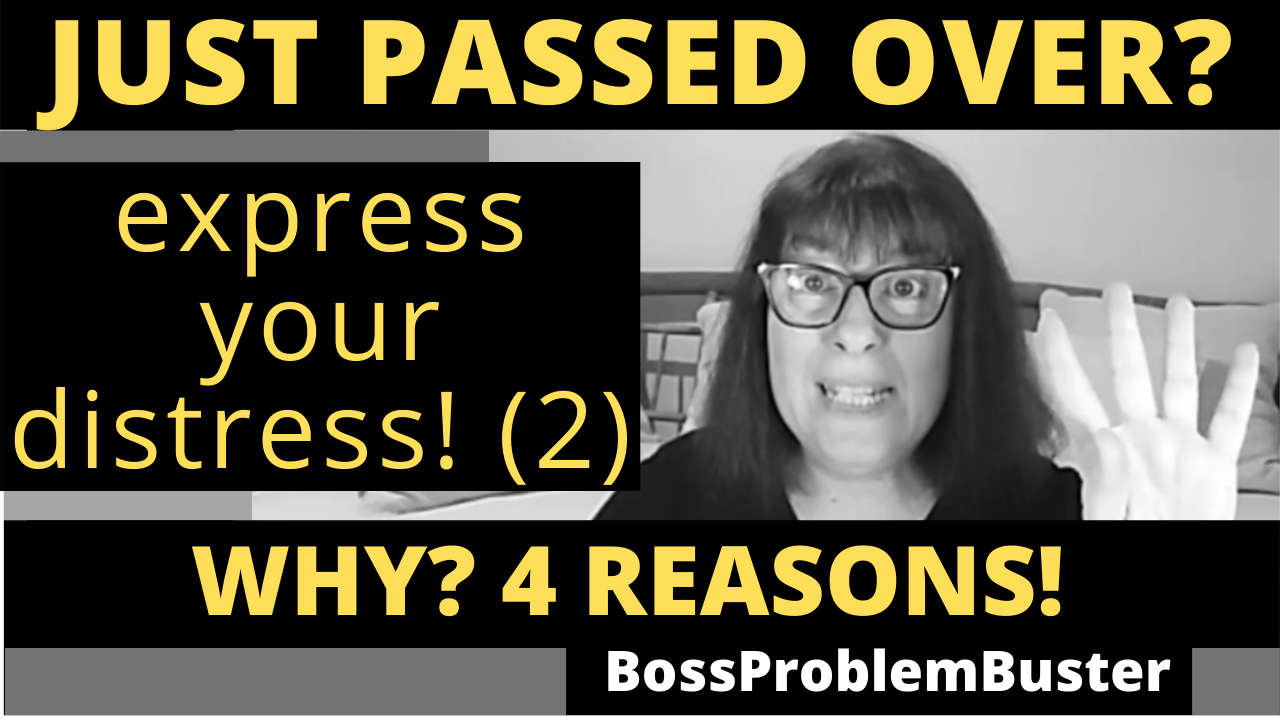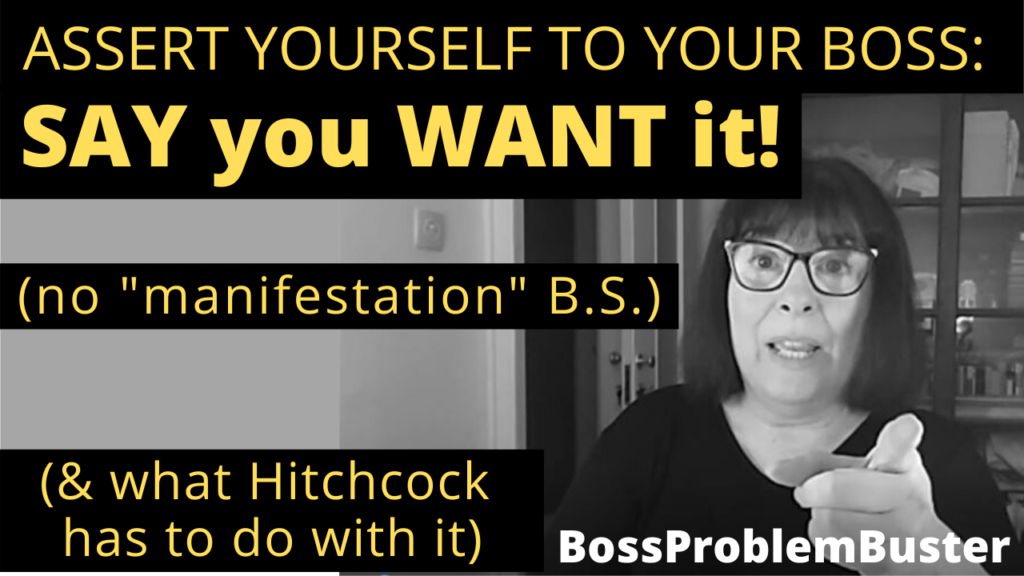BusterBits
short clips from our long-form Masterclasses
(video & text)
the best (and most unique)
career advice you’ll ever get!
low production value –
VERY HIGH content value
to get full benefit
watch / read in order
Passed Over?
Don't Be Mr. Spock!
Express Your Distress!
4 Reasons Why
understand the psychology and practicality
behind those crucial 4 reasons 2/2
below is a video clip + it’s full text
taken from the long-form Masterclass:
Passed Over for Promotion & Pay Raise:
What To Do (and Not Do)
Right After
to Get Another Shot
The Ultimate Guide
for most benefits and context
watch this first:
Passed Over? Don’t Be Mr. Spock!
Express Your Distress!
(but don’t be too mushy either)
part 1 of 2
(it will open in a new tab)
let's bring YOUR inner joy back!
We’ll bust our asses for you
(some free some paid)
but you have to make the first move:
Put in your most frequently monitored email, NOW
and get us on you’re side!
(no, no freebie – you don’t need a bribe – you need results!)
Passed Over for Promotion & Pay Raise:
What To Do (and Not Do)
Right After
to Get Another Shot
Passed Over?
Don’t Be Mr. Spock!
Express Your Distress!
4 Reasons Why
part 2 of 2
Why is this DO, Express Your Distress, so crucial? (we’re at DO no. 4 out of 8, so we’re half way there, hang on!)
What is the psychology, and practicality, behind it?
There are 4 reasons why Express Your Distress is so crucial. They are intertwined, and yet it is important to understand EACH, in and of itself.
Reason no. 1 why Express Your Distress is so crucial is:
Not showing emotions, especially when they are humanly called for, will not the only not endear you to people, but also will make you look like a freak!
Plus, this might disqualify you from a promotion, because a promotion, i.e., managing people, requires emotional sophistication and subtleties (as neither you nor your potential subordinates are robots). Thus, showing the corresponding emotion, to the situation at hand, in your case – the heartbreak of being passed over – is crucial.
With, of course, the caveat I’ve already addressed, that it shouldn’t be excessively emotional, or not appropriately emotional – we don’t want to overdo it – hence my constant emphasis on sophistication and subtlety.
Reason no. 2 why Express Your Distress is so crucial:
When one does not express an emotion, that is correspondent to the situation at hand, people might be confused, as to what this person is truly about, and they might get suspicious. Because anything that is confusing to people, i.e. anything that doesn’t follow common social scripts and behaviors, seems awkward, and therefore creates discomfort, which, in turn, might lead to suspicion regarding that person. You don’t want to be on the other end, of that suspicion.
Reason no. 3 why Express Your Distress is so crucial:
When you’re very subdued, and Mr. Spock-y (instead of upset), it is confusing to people in yet another way: They don’t know how to behave around you.
They take their cues from you, on whether to address the issue of you being passed over or not, whether to console you or not, whether to approach you or avoid you and so forth.
You don’t want to be in this position either – it’s not conducive to what I call your “office politics ranking” (not to say “rating”). And surely you see how this bad ranking, or rating, is not conducive for a promotion, or pay raise, or both.
By the way, the good news is that most people, once you’ve expressed your distress to them, will be empathetic (unless they dislike you, which will make them gloat, but only behind your back). Indeed, most people will be empathetic, and will even be extra considerate, for a short period of time, after the matter – so you may even gain some “slack cutting” from everybody around you – not your goal, of course, but not too shabby.
And since you’re emotionally beaten, any slack cut your way and any goodwill would naturally be appreciated, won’t they?
Reason no. 4 why Express Your Distress is so crucial, is the MOST crucial of them all:
If passing you over for a promotion, or a pay raise, or both, doesn’t evoke any emotion in you, any overt reaction, any disappointment, know that your boss might be inclined to deduce, that it wasn’t that important to you, that it wasn’t that big of a deal to you!
And therefore, he might be reinforced in his decision to pass you over (this time), and worse – he might take you out of the game completely, for next time!
Because if it doesn’t impact you, you probably don’t want it as badly as the other candidates, thus he would much rather give it to them – somebody who really wants it badly.
Why? Because the assumption is that the degree of wanting is a marker of the degree of motivation.
See how being a “good boy” employee, and being very subdued in your reaction, harms you? It absolutely does, and hopefully I have proven it to you by now.
You must understand that you expressing your distress, as this DO no. 4 suggests, is not so much about you, in an odd kind of way, as it is about how people PERCEIVE you – your boss most of all.
So regardless of what you feel comfortable doing, regardless of what you actually feel (say you not devastated, for whatever reason), you still need to be very conscious of the DEGREE of emotion that you need to express in order for you to be in the game the next time round.
Get notified
so that you can bring YOUR
inner joy back!
when a new video / post is uploaded
(not too often, just right)
you’ll get the link delivered to your email
so that you don’t miss on the insights and tools
that can kill your Monday blues once and for all!
So if you’re serious about getting YOUR inner joy back –
Put in your most frequently monitored email, now:

